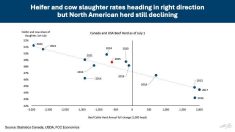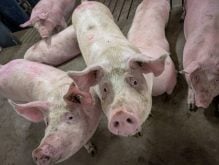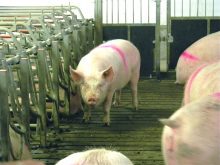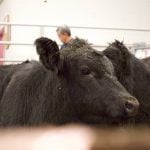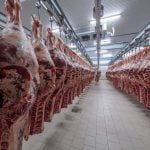It may not be Manitoba hog producers’ biggest market, but the resumption of pork exports to China is a positive sign for a beleaguered industry.
China last week signalled it would lift a ban on pork and pork products from Manitoba, Alberta and Quebec because of the H1N1 flu virus.
China imposed the ban earlier this fall after the virus was found in hog barns in the three provinces.
Indications that the embargo would be reversed came during a state visit to China by Prime Minister Stephen Harper. A ban on live swine remains in effect.
Read Also

Manitoba Ag Days 2026: Local businesses gear up for Brandon farm show
Most of agriculture is seemingly at Manitoba Ag Days each January: Manitoba agribusinesses and farm groups look forward to connecting with farmers at the 2026 show.
Canadian officials vowed to continue seeking the removal of all hog-related trade restrictions with the Asian country.
China was Canada’s 11th largest pork customer in 2008, importing 35 million kilograms worth $47 million. The shipments include lower-end offal meats, valued in China but less so in other countries.
Japan was far and away Canada’s highest-value pork customer in 2008, importing $856 million worth of product. The United States followed with $833 million.
The impact of temporarily losing the Chinese market was more psychological than anything else, said Andrew Dickson, Manitoba Pork Council general manager.
Canada’s hog farmers blame H1N1 for giving consumers a false impression about the safety of pork and delivering a blow to already-depressed market prices.
Dickson said China’s action may have had more to do with satisfying their own producers than with health concerns.
“Our impression is that the Chinese had internal issues they were dealing with and this was a way of trying to slow imports for a while.” [email protected]



